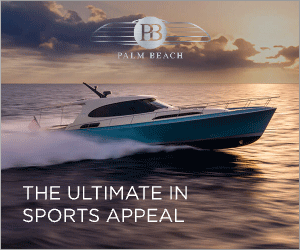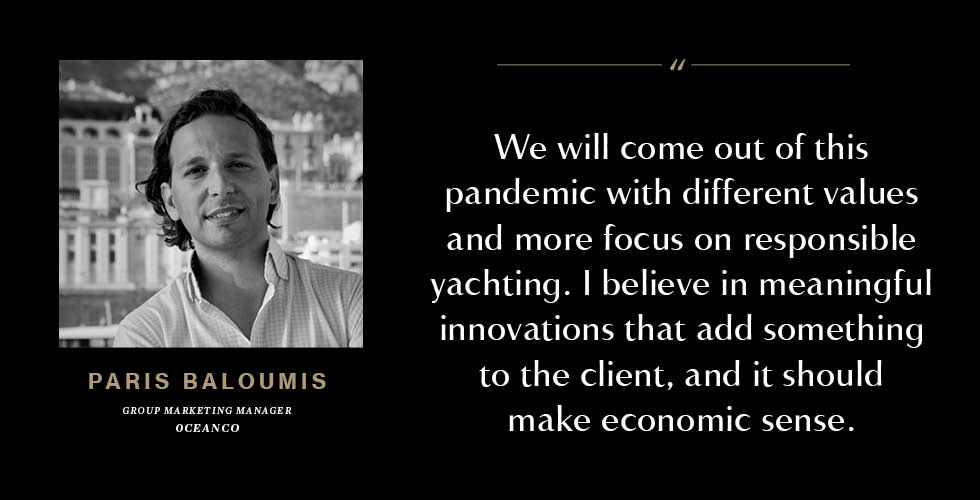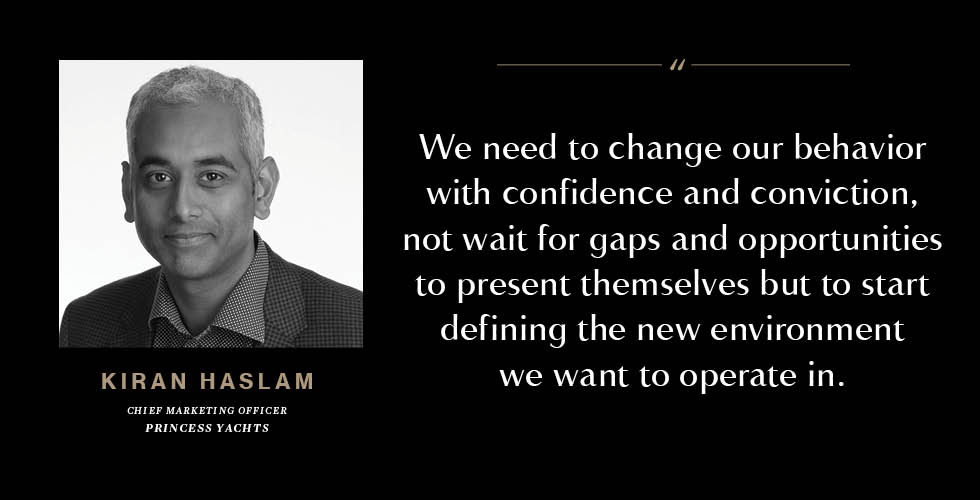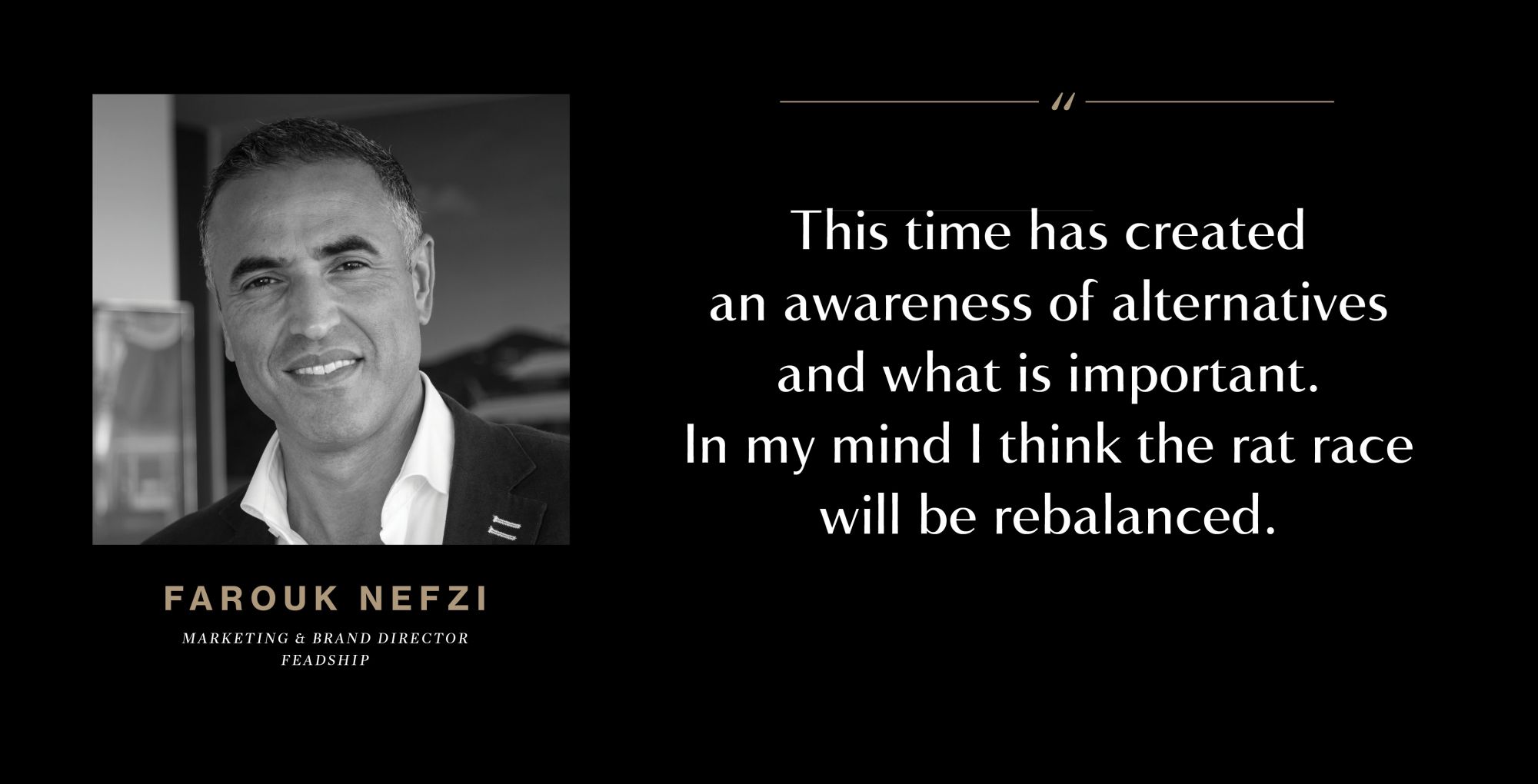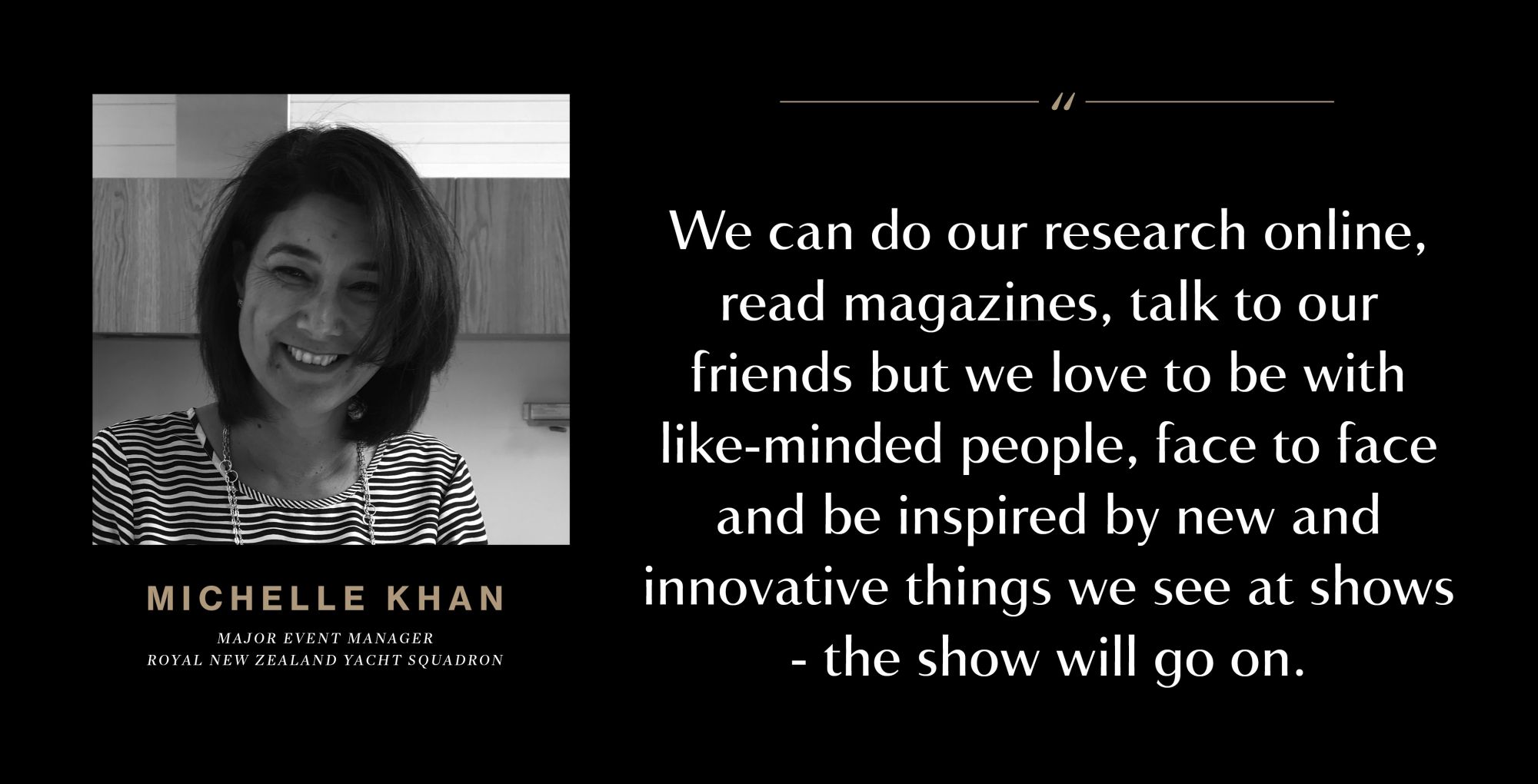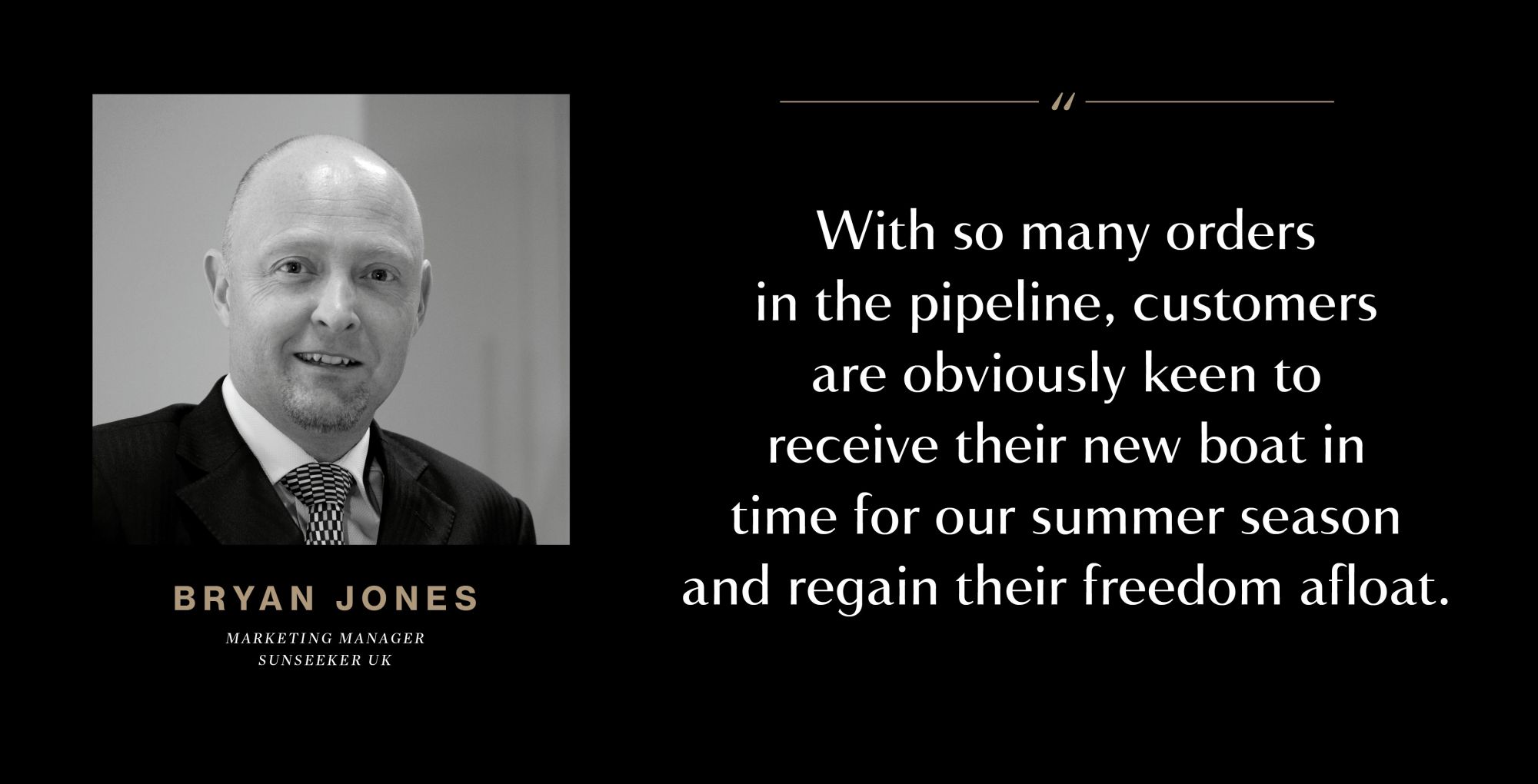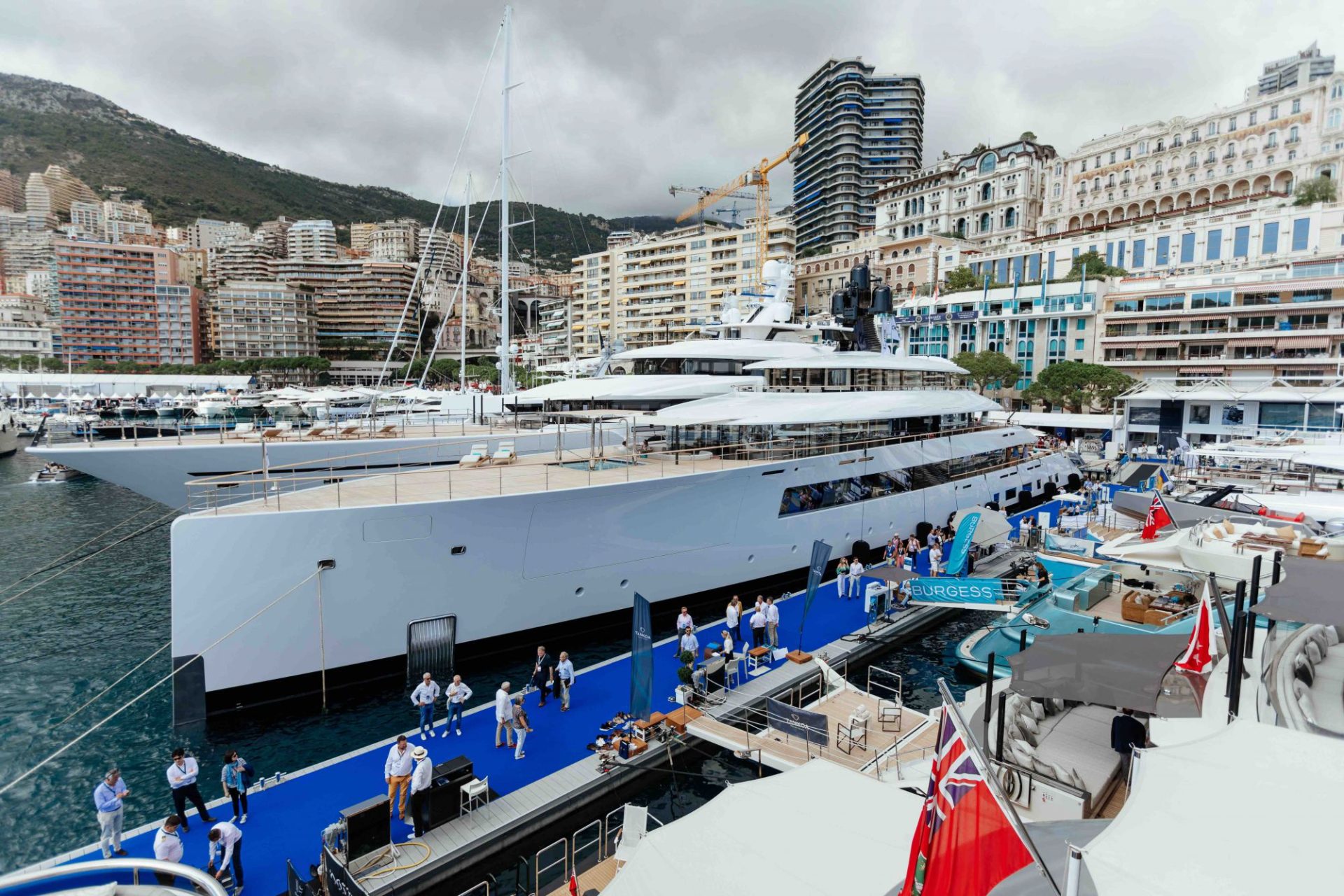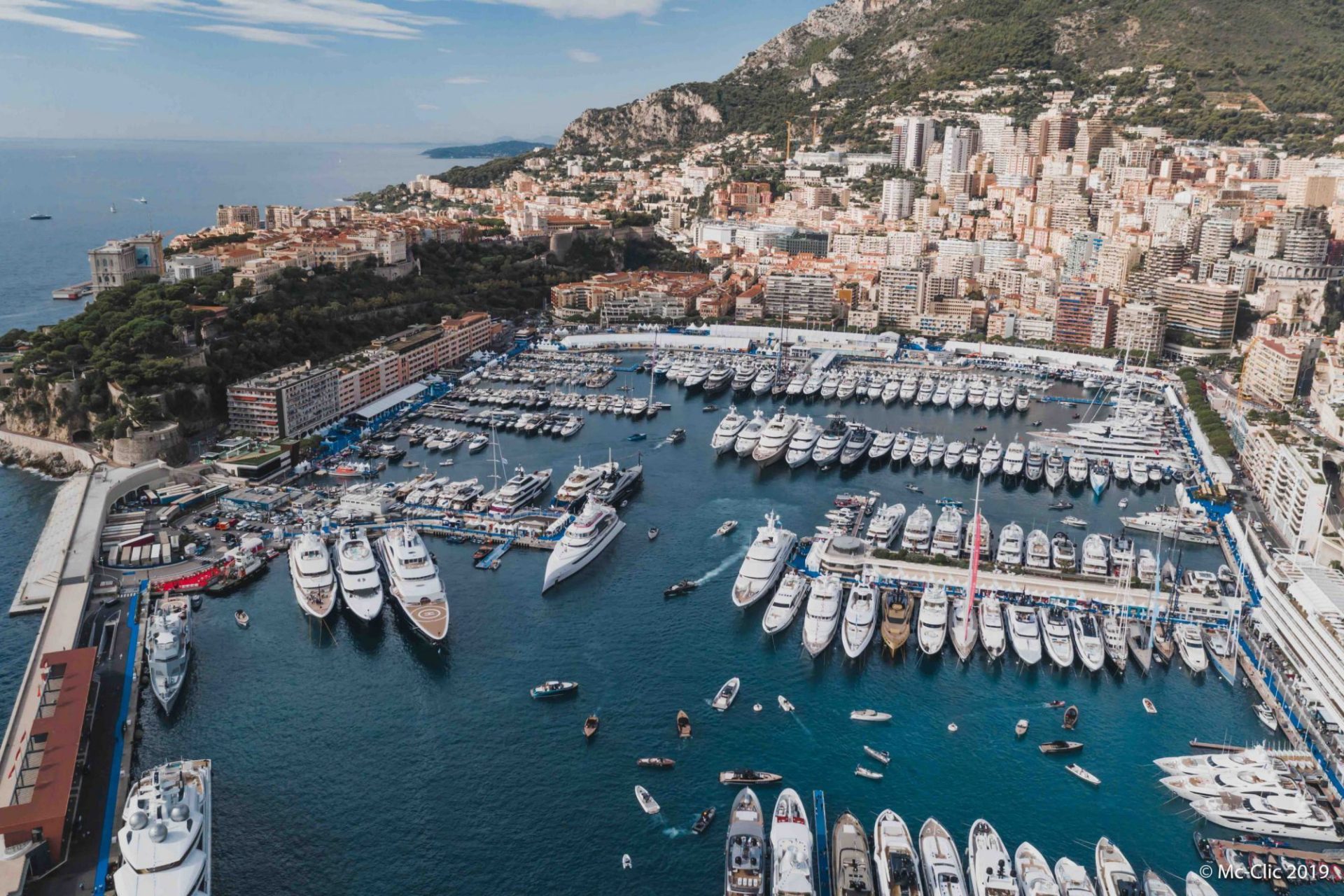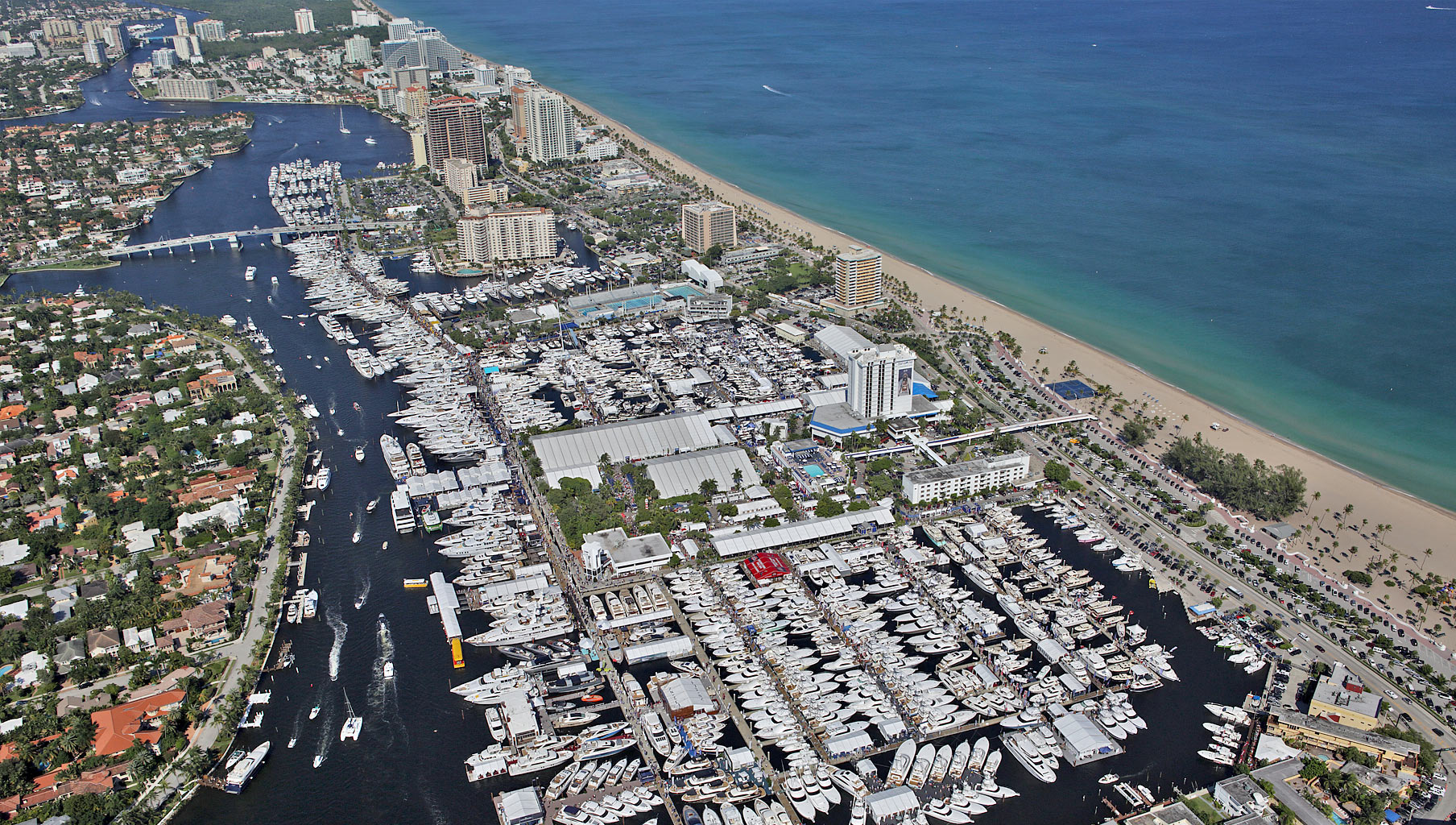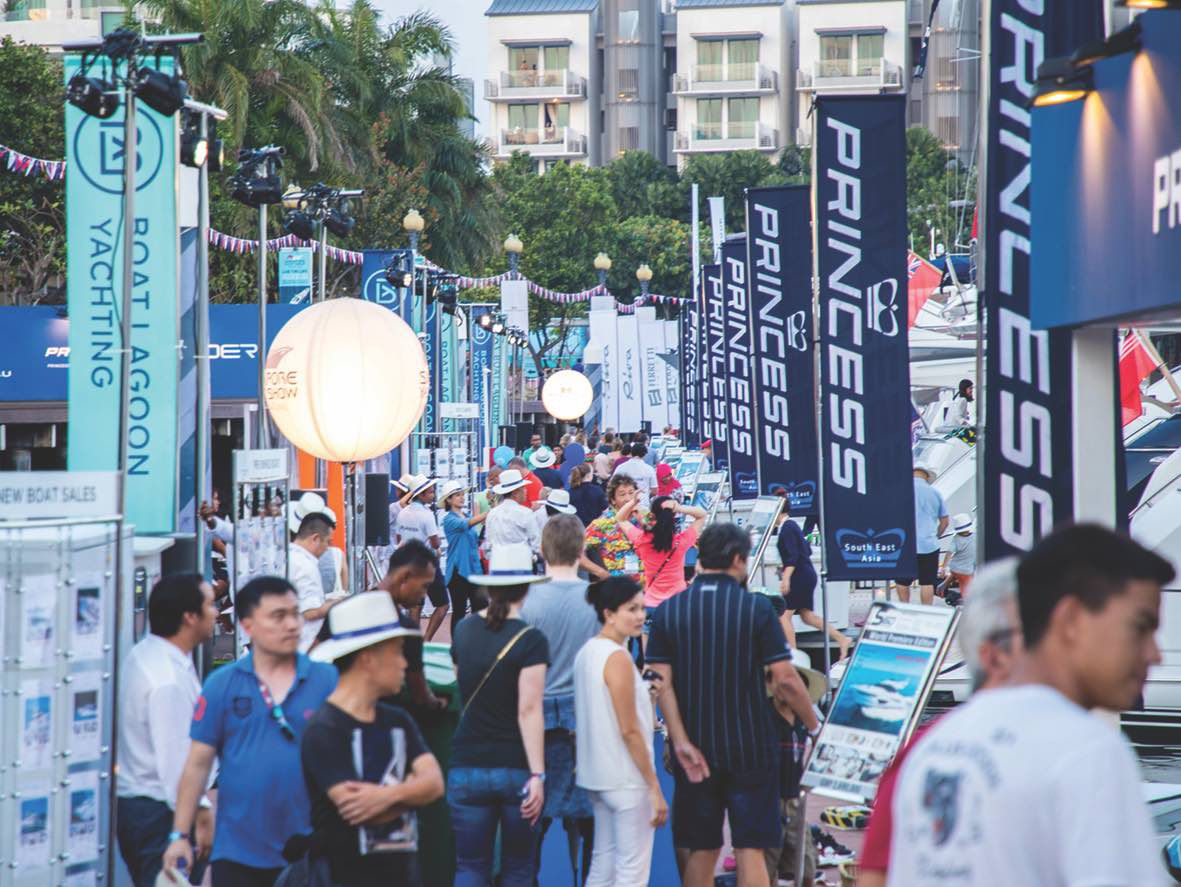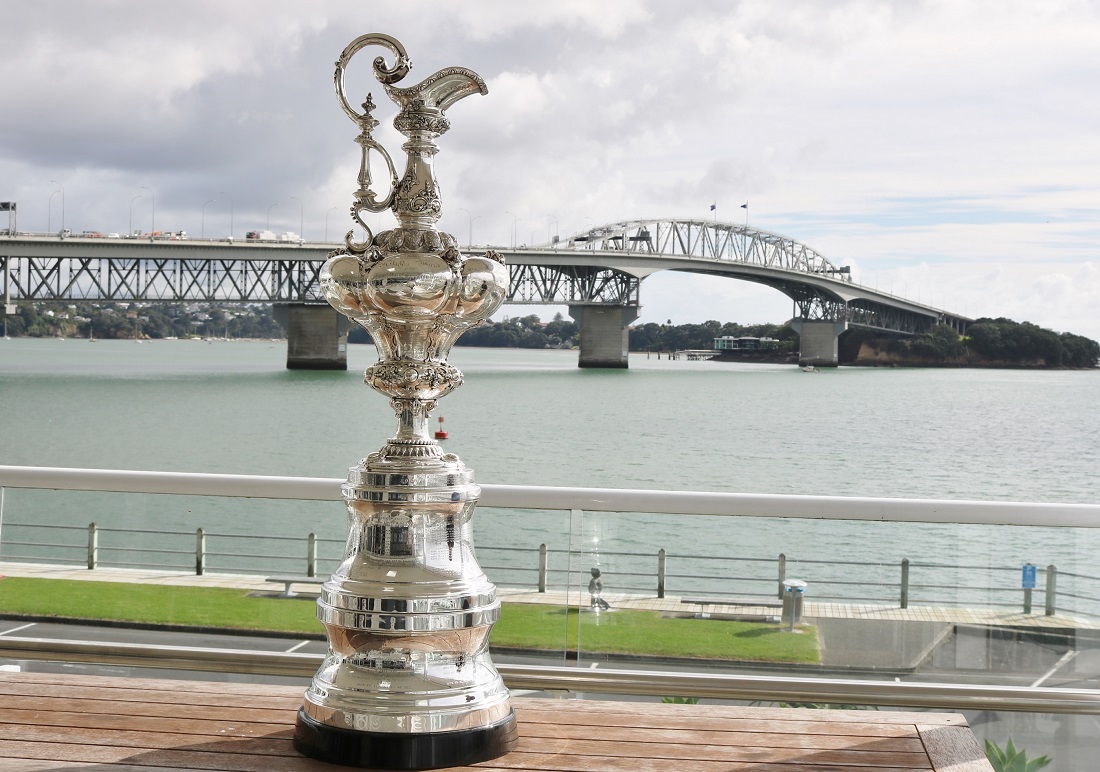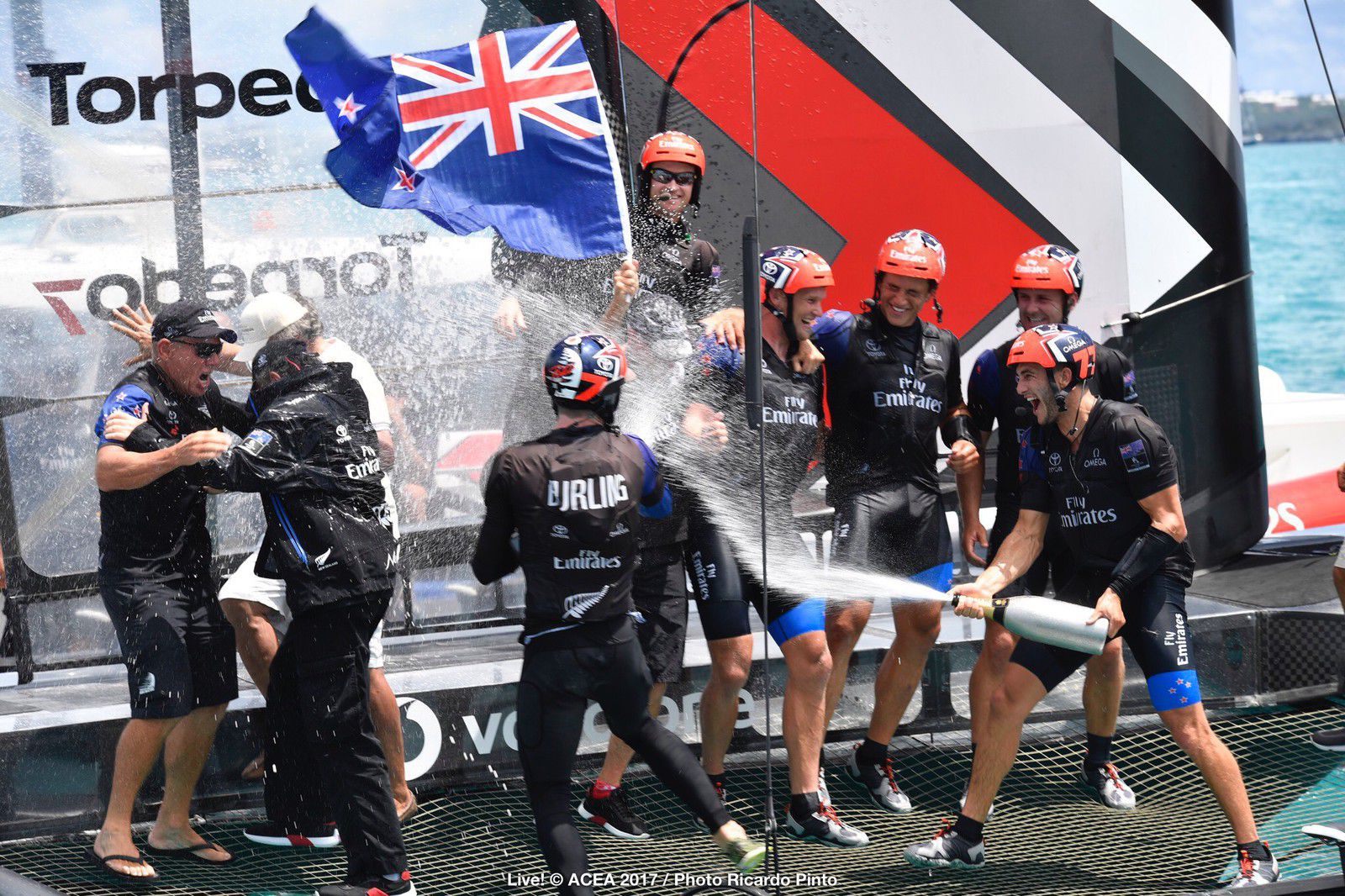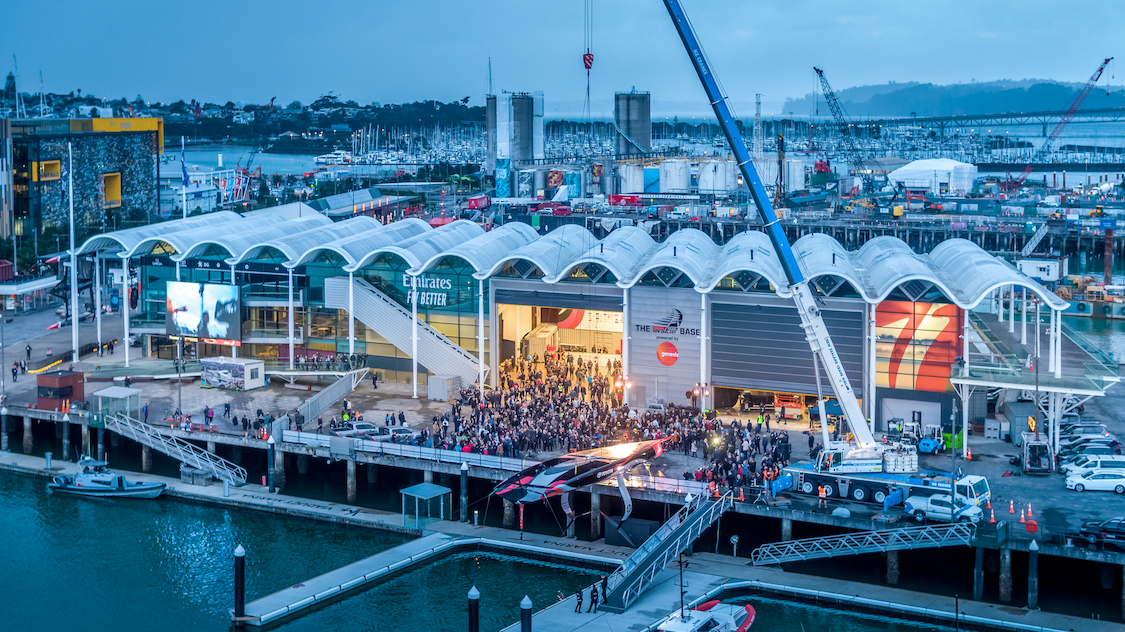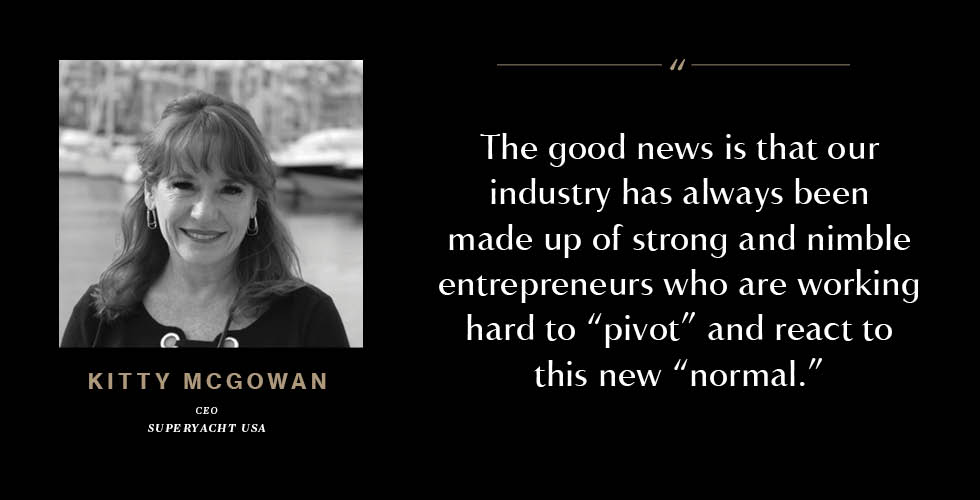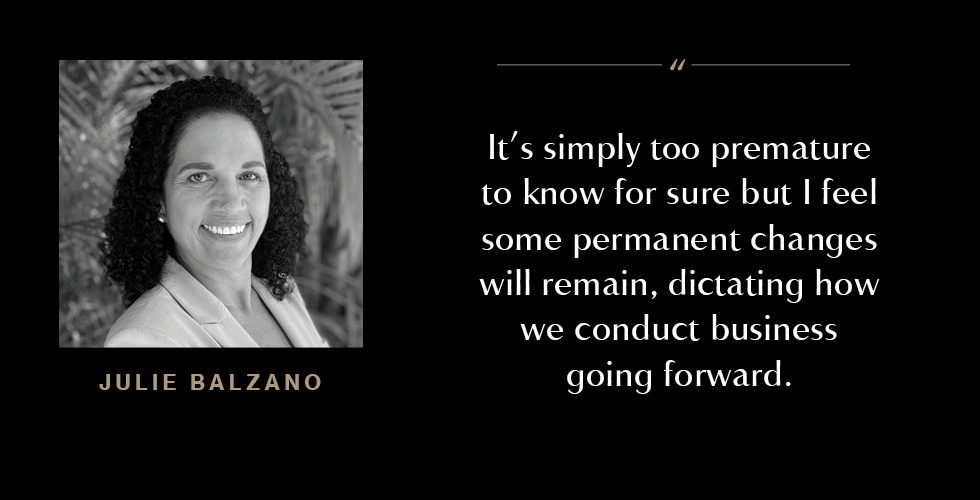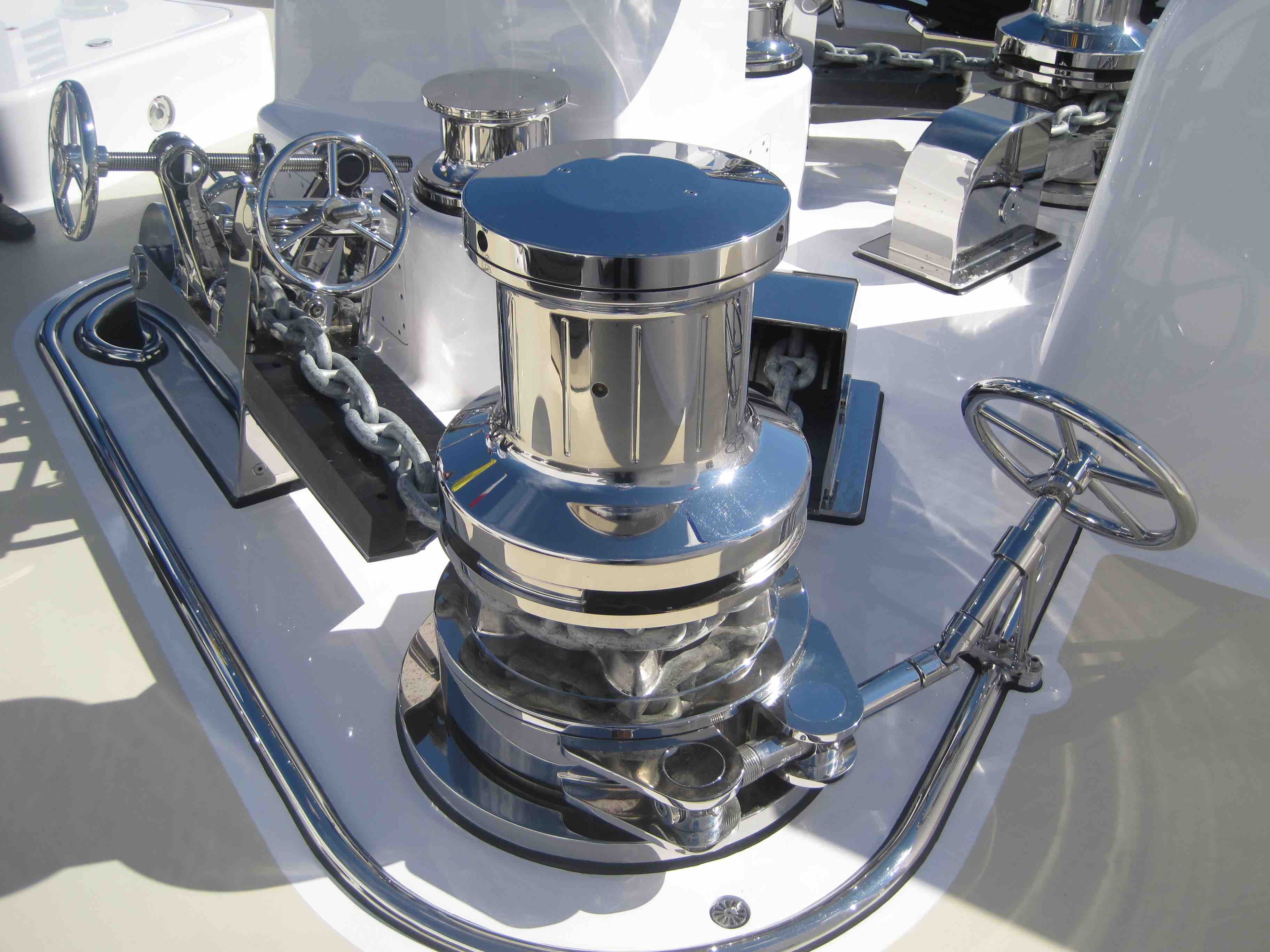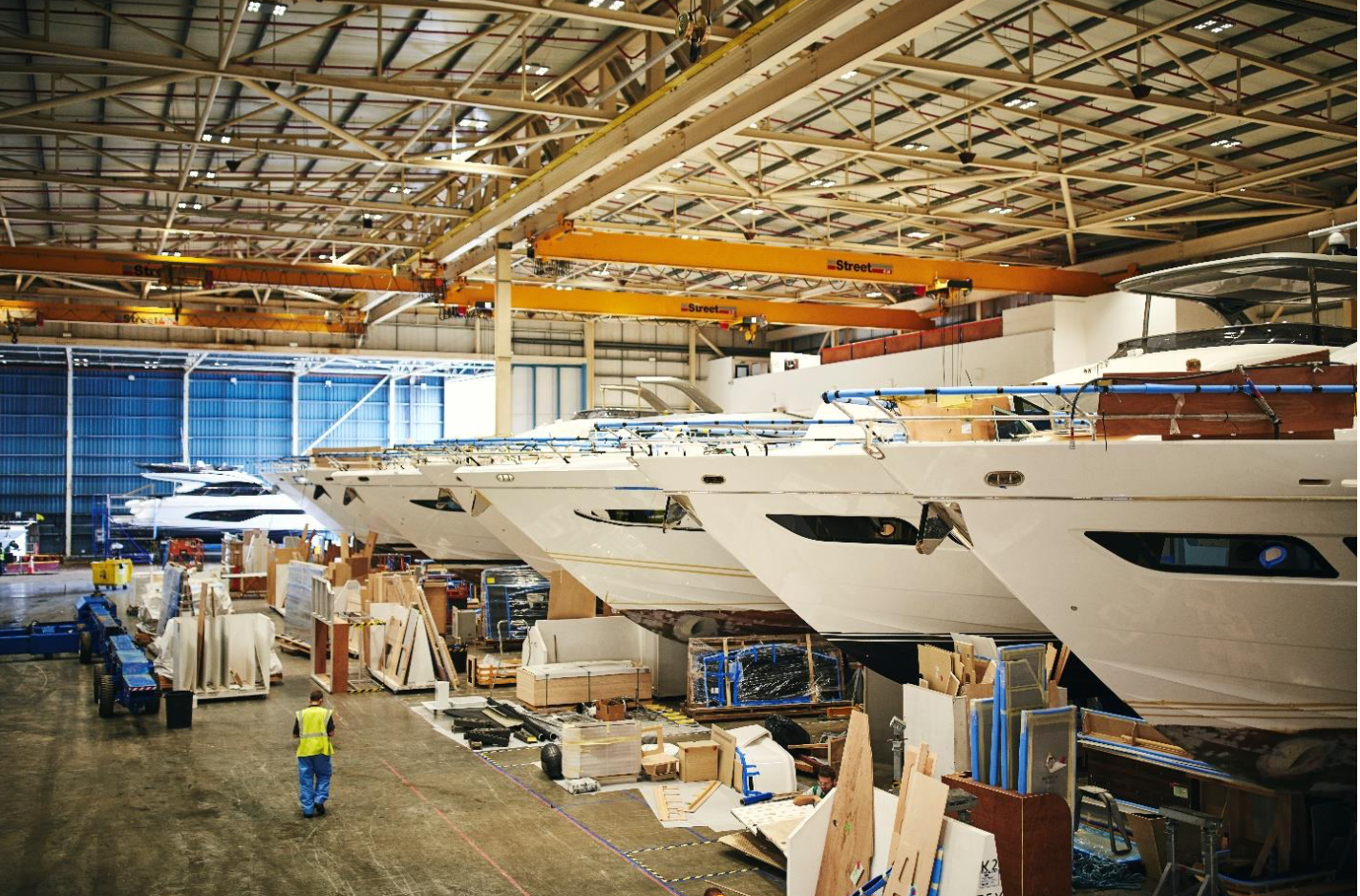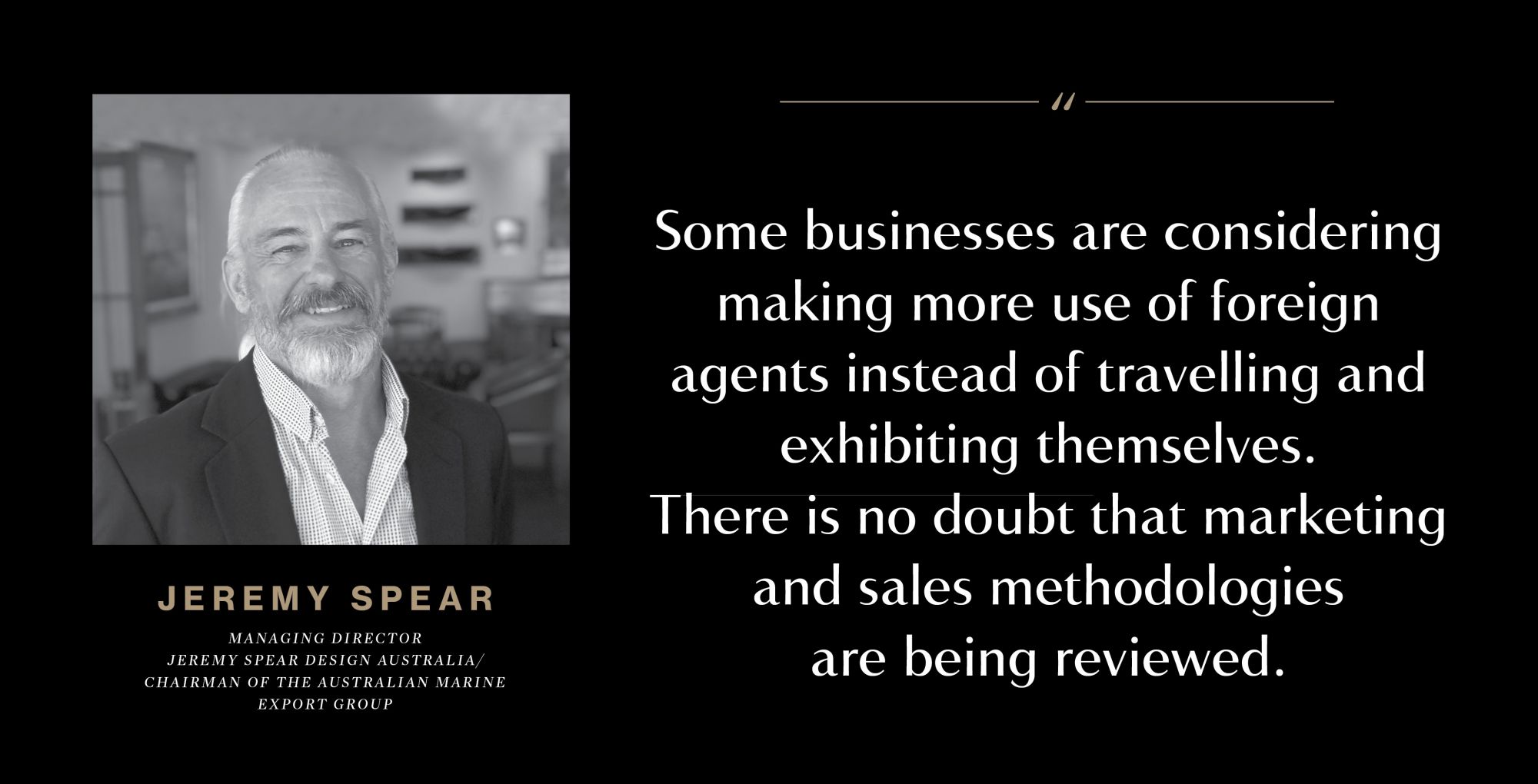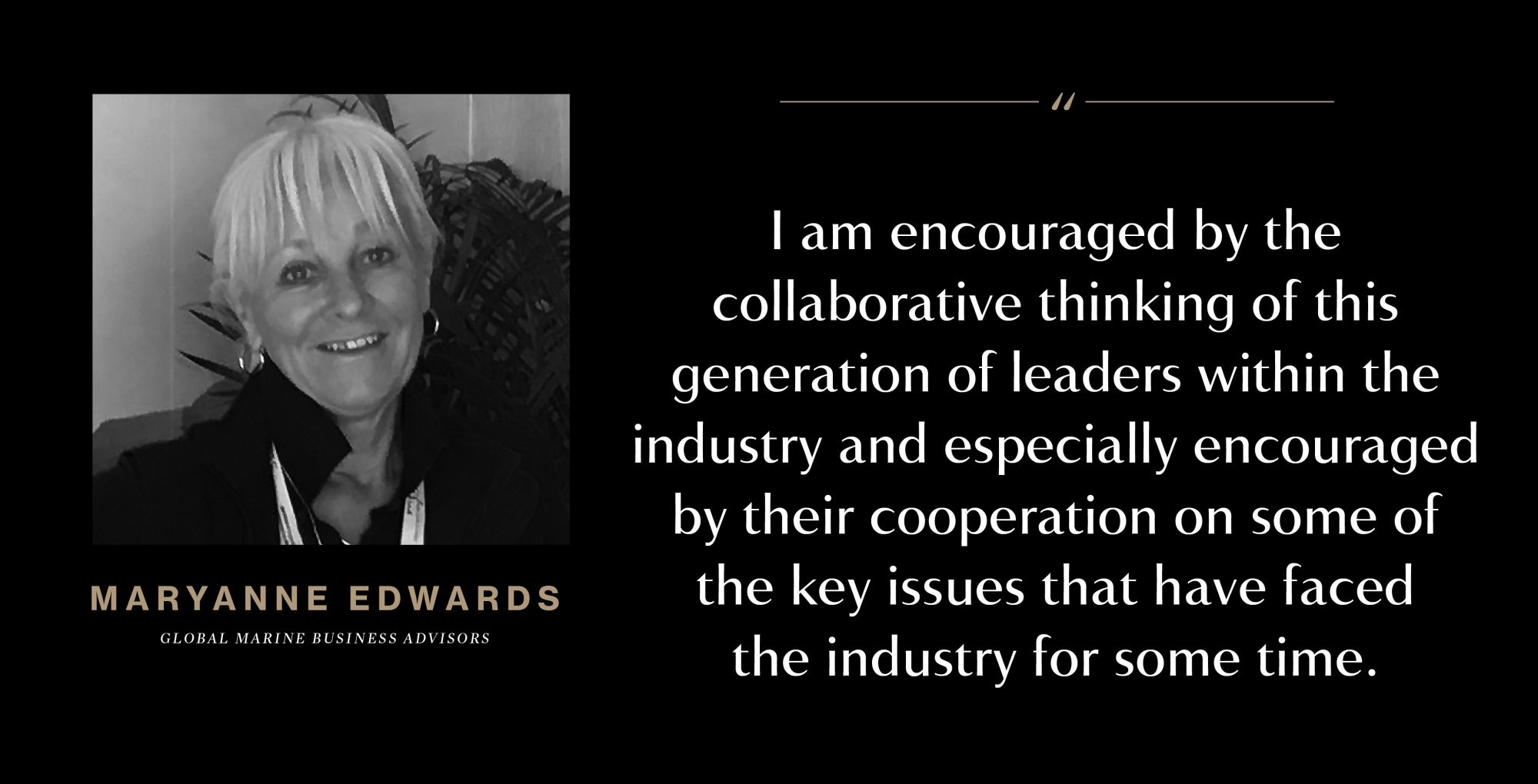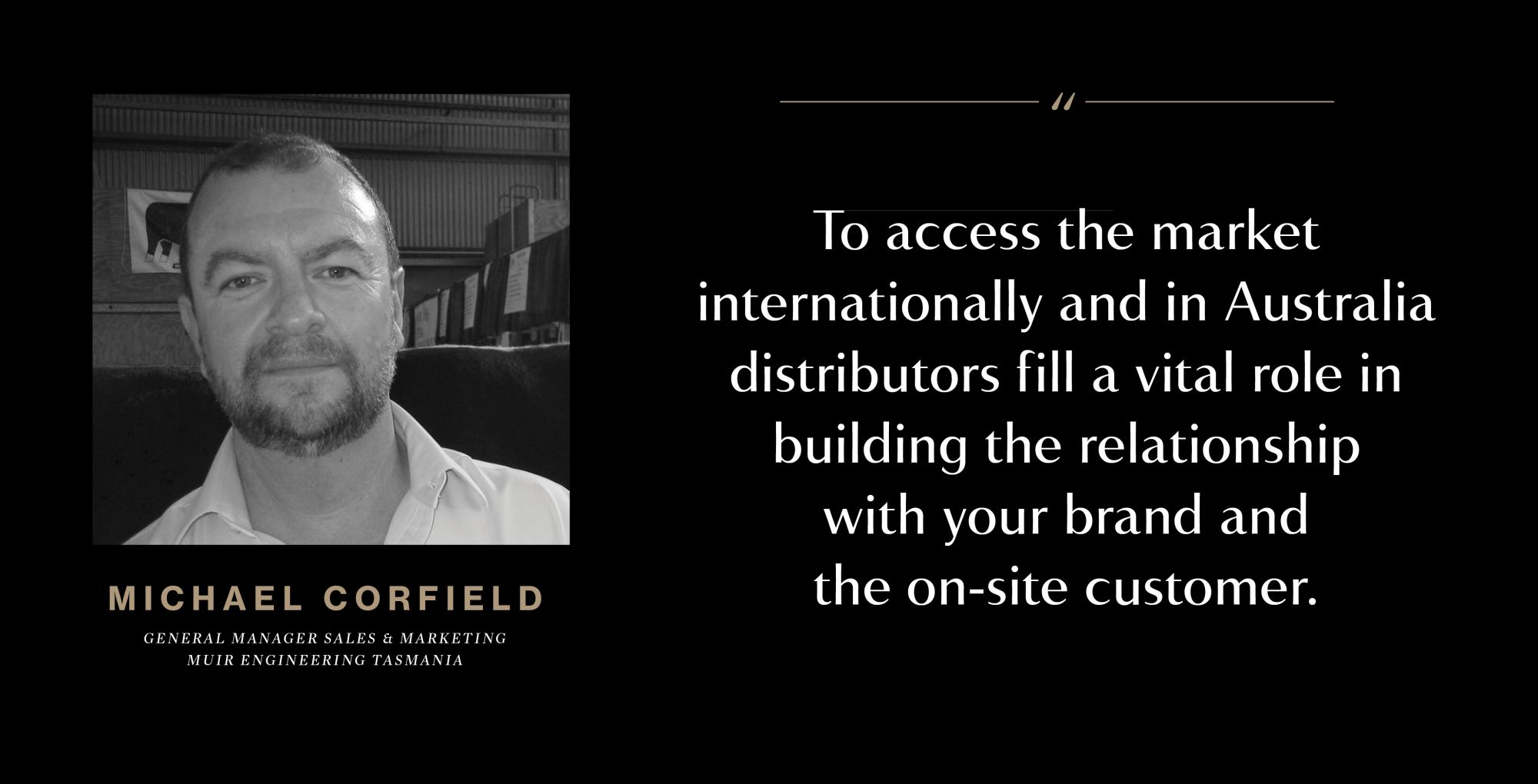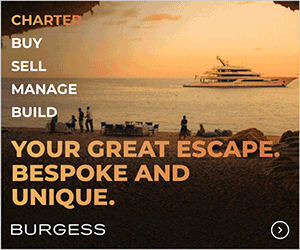Adapting to win
Key marine industry players from established brands are not sitting idly by during the COVID-19 pandemic. Instead, they are using this enforced reflection time to make things happen, create new opportunities and, most importantly, shape the future.
Written by MaryAnne Edwards
12 May 2020
As innovation strategist Max McKeown says, “Adaptability is about the powerful difference between adapting to cope and adapting to win.”
And for a number of personalities across Australia, New Zealand, Europe, the United Kingdom and America – who all have a stake in the industry and in shaping the marine environment of the future – coping is not an option when you are striving for success.
Rather, they are already looking to the future and considering what they need to do to prepare for a market on the other side of COVID-19, ensuring the resilience of their brand and the viability of their businesses going forward.
With the effects of COVID-19 still sending shockwaves through the industry, we investigate its effects on consumer behaviour, normal sales and supply channels, and ponder what the boating industry look like in the short-term and beyond.
Above all, we consider the learnings that we can take from this crisis to develop our industry and change its future.
A new normal
We are all acutely aware that social distancing will be here for some time and the concern for our health and safety – and our family’s – will remain paramount.
In addition, international travel as we knew it is unlikely to return any time soon. The reality is that regardless of wealth or position, at the time of writing, no-one is keen (or even able) to travel on commercial airlines to conduct business or take a holiday – and many will wait for a vaccine before they travel again internationally.
Once restrictions are finally lifted, travellers and airlines will be forced to adhere to new rules and regulations. But, just as we adapted to the stringent security measures that terrorism brought to travel, so we will adapt to social distancing and the health checks that may become mandatory for travel in the future.
So, within this context, what are companies thinking and planning? While the self-isolation and social-distancing regulations came as a shock, many within the industry have taken this time to reflect on their business and the wider industry, using this time productively.
Health and safety first
Naturally, the overwhelming priority for everyone in business has been the health and safety of their staff, their suppliers and their customers, and all have emphasised the importance of proactively communicating with stakeholders about their new health and safety protocols.
Paris Baloumis, Group Marketing Manager at Oceanco, whose yard is based in The Netherlands, says: “Most colleagues are working remotely.
“We adapted early by investing in guidelines and measures such as installing heat cameras, working in shifts, instigating social-distancing methods and adding extra cleaning rounds to keep facilities open. This safeguarded our production process.
“We have reassigned colleagues from various disciplines to offer support to projects that are currently in build, and we keep in close contact with our co-makers and suppliers on both a business and personal level.
“Innovation has been key, as has adaptability and flexibility.”
A recalibration
UK-based Sunseeker International ceased production temporarily during March in response to government guidelines and Global Marketing Manager Bryan Jones says: “Autumn boat shows in Europe and North America will be especially important this year. We are carefully monitoring which shows may take place as well as any applicable restrictions – we will know by July which ones will proceed and what form they will take.”
In addition, he says: “Subject to government advice, Sunseeker is planning a phased restart to full production during May and June; it will probably take a month or more.”
Being able to source about 65 percent of their products from within the UK helped to reduce supply chain delays and Sunseeker was able to finish boats that were nearing completion, securing delivery – and revenue.
With sales down and fixed overheads remaining, many builders will find themselves in the same position.
Trying times
For most businesses, current sales and enquiries are down anywhere from 50 to 80 percent. Government support packages, low- or no-interest loans and banks deferring mortgage and debt repayments are offering comfort, however some businesses have missed out.
In the UK, this includes those businesses that need the injection of funds to save thousands of jobs. It is understood that the British Marine Federation is lobbying on this issue and industry bodies are playing a positive role.
Government support is helping in the immediate period, especially in Australia, but it isn’t enough for many businesses and ultimately, this support comes at a significant cost to our economies.
“We will come through this crisis as most established global businesses will, but there is no doubt the superyacht industry will feel the pain,” says Michael Corfield, General Manager Sales and Marketing, Muir Engineering Tasmania.
“We are seeing new projects being initiated in Italy and Holland, which is positive, and we have seen good demand for refit and repair work as boats are confined to base. Our primary focus has been on the health and safety of our staff and ensuring we don’t let our customers down.
“We haven’t stood down staff; there is social distancing in the factory, and productivity remains the same.”
Corfield continues, “Communication between non-production staff and production has clarified priorities for the business and new orders are still coming in while shipyards and refit yards are going ahead with projects and current orders.
“Australia has an advantage in that production didn’t close and our government support was effective; they reacted quickly and, as a country, we will come through this better than many.”
Opportunity to reflect
Isolation has, for many, allowed time for clarity of thought to emerge. Farouk Nefzi, Marketing and Brand Director for Feadship, says: “We have spent considerable time with family and have had the rare chance to halt the crazy lifestyle we lead. For me personally, the increased contact with my family has given me more Zen.
“This crisis has also given us time to reflect on what is important. It makes you consider your values, your focus and what will change when we move out of this phase. To my mind, the rat race will be rebalanced.”
On the work front, Nefzi explains, “A critical focus for us at Feadship has been ensuring positive dialogue with our clients. Personal engagement is critical, but we have done this with reasonable success using technology and without travelling.
“Like many, we have had challenges with our supply chain and the rescheduling of work, but at this stage, we plan to deliver our projects on or close to time.”
Change is coming
This Zen thinking, referred to by Nefzi, is not only permeating our state of mind during isolation, it would seem it is the X factor our industry needs right now.
Kiran Haslam, CMO at Princess Yachts, has also used this time in isolation to reflect and plan the future. He says, “We must review our strategies and adapt quickly. We need to change our behaviour with confidence and conviction, not wait for gaps and opportunities to present themselves.
“We need to start defining the new environment we want to operate in – one that provides a significant degree of transparency, confidence, integrity, honesty and personalisation for our staff, suppliers and customers.”
As we bring into sharp focus the areas most in need of an overhaul, there are three in particular that I personally see as critical that we get right: boat shows; the supply chain; and distributors, sales channels and the power of the brand.
Boat shows
As we all know, the buzz at boat shows is created by the major yacht builders who can spend upwards of $1 million at shows like Monaco. These builders and other major players manufacture the magic of shows, creating impressive stands, entertaining in a multitude of ways, and generally creating the VIP environment that many clients expect – and attend – to experience.
However, with the emphasis now on the health and safety of staff, suppliers and customers, client entertainment at shows will no longer take place in the usual format. No-one will be hosting large groups or big parties, and even intimate cocktail parties will need to be reviewed.
The consensus is we are unlikely to see a traditional boat show season in 2020 and what will happen after that is a hot topic of discussion among many in the industry.
Moreover, with the feeling that many big shows have lost track of who the real clients are while absorbing considerable revenue from the industry, their viability in their current form is under question in general.
It has long been a bone of contention that exhibitors are forced to use designated caterers, stand construction companies, electricity suppliers, freight and logistics companies, and other service providers, preventing flexibility and adding more costs. Accommodation rates at major shows have also soared, making costs untenable for everyone.
The industry wants to keep boat shows in some form, but also wants to control their client’s experiences and their costs. Ways need to be found that mean this can happen while still allowing boat shows organisers to have a viable business.
The other major issue is the feeling that shows are not eco-friendly. As Haslam laments, “Anyone who does a tear-down after a major show gets that awful feeling deep down when they witness the volume of material used in a build-and-burn manner going into skips and heading for landfill.
“COVID-19 will radically alter the way shows exist – and no doubt their importance. Given that the writing has been on the wall regarding the environmentally unsustainable aspect of these shows for so many years, perhaps this will finally nudge us to start doing the right thing.”
For many, the current boat show model has become outdated in more ways than one. For those in the B2C space in particular, shows are primarily used for branding, and actual sales are taking place in a completely different environment.
He also makes the important distinction that “there are two segments within a boat show: the B2B component and the B2C. We need to separate the experience; it must be a different approach for each.”
There is a strong impetus to address these issues collectively as an industry and come up with a model that works for everyone.
As Haslam explains, “There is no doubt boat shows have a place in the sales and marketing mix, but things need to radically change.
“The current situation presents an incredible opportunity for the industry to investigate new ways to strengthen our brands while continuing to offer customers a unique and personalised experience.
“As an established and powerful brand, Princess has a responsibility to our customers, staff, suppliers and environment, and we are happy to sync up with other brands to start changing things for the better,” concludes Haslam.
There is no doubt that a solution will be found – industry is demanding it – and those who have been on the boat show circuit in particular would like to see them continue in some form.
After all, attending boat shows to drive brands, grow the market and catch up with industry colleagues is a big part of the buzz we all get from working in or being aligned with this industry.
“We love to get together, which is what makes shows work. Sure, we can do our research online, read magazines, talk to our family and friends, but we love to be with like-minded people face to face and be inspired by new and innovative things. The show will go on.”
In a previous role, Khan organised the successful Auckland On-Water Boat Show and is currently weaving her magic with events for the Royal New Zealand Yacht Squadron at the upcoming America’s Cup.
In her experience, she believes, like many others, that shows need to evolve. This will include a combination of initiatives that innovative show organisers will need to institute to maintain their place in the marketing mix.
However, with many shows cancelled already and the high concern customers will have for their and their family’s safety, we must question how many clients will actually attend a boat show should it occur.
“It’s an important part of our marketing mix, but in the current environment, I have doubts any of the major shows will be well supported even if they do go ahead,” he muses.
At time of writing, Monaco, Fort Lauderdale and the METSTRADE Show will all go ahead.
Discussions with representatives from industry and from the Monaco and Fort Lauderdale shows have occurred, but so far organisers have offered little in the way of real innovations to appease social-distancing rules or soften costs.
Baloumis from Oceanco offers some insight, saying: “We are in direct contact with the Monaco Yacht Show as well as with our fellow large yacht builders to take a unified approach regarding what we should do.
“For the moment, we will reconvene in June on this topic. In any case, we will not organise any events that require people to gather in larger numbers.”
The supply chain
In talking with key industry representatives, there are varying stories regarding their supply chain.
All have experienced some delays and there are instances of no supply, but in the main, most state they have worked closely with their suppliers with good understanding and loyalty on both sides.
In instances where the relationship between the supplier and customer has broken down, it inevitably provides opportunities and, in a global crisis, manufacturers and boat builders alike will assess where their weak links are and take measures to address them.
“Suppliers have met with our chairman on Zoom calls and been transparent and forgiving, especially given the economic situation.
“Many of them have made a commitment to stay and support us, but sadly some of them have chosen not to continue given their specific circumstances,” says Haslam.
“We are constantly reviewing our supply chain and as much as there is loyalty and history, there is also the opportunity for change and to build new relationships.”
As noted, with critical bottlenecks in production timelines, just as governments will have to look at sovereign capability, so too will businesses.
Many have not fully understood where their supplier product originated and feedback suggests that the industry will be wanting far more transparency and assurances in this area going forward.
When asked how Australia is coping with supply chain delays and the issue of sovereign capability, Jeremy Spear, MD at Spear Green Design Australia, commented: “There has been a huge return to Made in Australia products.
“It seems the end user is becoming more likely to accept that buying local preserves industry, protects jobs, retains profits, and is ultimately more reliable.
“How long this sentiment remains in the local psyche remains to be seen, however,” ponders Spear.
Meanwhile, Baloumis emphasises the importance of collaboration that this will necessitate, saying: “We recognise, more than ever, how connected we all are. As builders, we have the challenge of keeping on track and delivering to agreed timelines.
“In many cases, we are dependent on the supply chain infrastructure. We do not operate in a vacuum and hope the supply chain will weather the crisis as we get through this together and come out stronger. It is critical we have a dedicated focus right now.”
No doubt supply chain management and sovereign capability will both become review priorities as supply delays and production bottlenecks are analysed, throwing up threats to some and opportunities for others.
Distributors, sales channels and the power of the brand
There is no doubt that boat shows as a sales and branding platform do work, but in an environment where social distancing could become the norm and overseas travel will be curtailed, it is evident that to continue to offer a personalised experience to customers, distributors will not only become more important, they will need to interact in a more unique and effective way.
Virtual tours, webinars and high-level digital graphics, websites and technology all have their place, but they won’t replace the value of building relationships or trust that personal interactions provide. It is also important to note that sales that are B2C need a different personalisation than B2B, so it will be important for businesses to develop strategies that attract and work for customers in each segment.
It will also be critical to ensure that distributors have some skin in the game. Distributors must have a vested interest and be able to live and breathe your brand culture and values – if they don’t, you will need to review this structure going forward.
“To access the market both internationally and in Australia, distributors fill a vital role in building the relationship with your brand and the on-site customer,” explains Michael Corfield.
Some salespeople and distributors will need to change, however. They will need to be transparent, better educated, and more informed and knowledgeable about their products. They must be ambassadors for your brand. In the immediate absence of boat shows, they will need to pass on to your customers – existing and prospective – the value of your brand.
And their loyalty to your brand must be unquestionable. The company whose staff has good tenure with the business and will be around long after the sale is completed will be a key asset; continuity is a key customer requirement.
We all know how important branding is, placing it high on the list of priorities for businesses to protect and strengthen during this COVID-19 environment in the absence of personal interaction and travel. Distributors, as suggested earlier, will in many instances become the frontline for your brand and will need both direction and support.
This raises many questions that will need to be addressed such as how to create prestige, trust and confidence to take the business forward; how to connect and interact with customers without the platform of boat shows; and how to personalise the brand and appear genuine. How to offer a unique buying experience and how to introduce yacht owners and prospective owners to the industry and the products and services provided will also need to be answered.
These are interesting questions, and many of our Zen thinkers have developed ideas in response, but their initiatives will need to be tried and tested. In the meantime, there are two final points worth discussing: the emerging situation in the USA, and the role of industry in the current environment.
Keeping an eye on the US
For many marine industry businesses that export, the USA is a key market. We have seen the devastating effects on this country in terms of deaths from the virus, the number of unemployed and the varying actions taken by different states in terms of their reaction to closing marinas, stopping people from using their boats, and forced shutdowns of business.
Some states are now reducing restrictions and boatbuilding yards and marinas are reopening. Recent stats from the National Marine Manufacturers Association (NMMA) reveal that 81 percent of manufacturers report a sharp to moderate decline in sales. Moreover, 15 percent have permanently closed facilities or locations, and 71 percent are facing both supply chain disruption and increased pricing pressure from dealers who are unable to sell product due to showroom closures.
Kitty McGowan, CEO of Superyacht USA, reported: “In many of our states, the superyacht industry, which often overlaps with both commercial and government work, has been able to continue essential work like keeping vessels safe.
“Many of our boatyards have remained busy by continuing existing work while working hard to establish protocols that enable them to keep their teams safe.
“From a supply chain factor, many sectors are experiencing delays in receiving components due to delays in shipping from countries challenged by COVID-19.
“This continues to be an extremely fluid situation – things are changing daily from coast to coast, state to state and county to county.
“We remain hopeful for a mid to late summer small charter season in the Northeast and Northwest sectors and, having re-emerged from this crisis, look forward to the end of year being stronger.”
Julie Balzano, who for eight years led the export efforts for the National Marine Manufacturers Association, spoke about the recreational sector: “Some US states are now starting to reopen their economy. We are beginning to see an outline of what business life following COVID-19 might look like for the recreational boating industry in general and trade shows in particular.
“But we can still only begin to predict what changes will be made as more states loosen their stay-at-home orders and our industry looks ahead to the fall show season. It’s simply too premature to know for sure, but some permanent changes will remain, dictating how we conduct business going forward.
“What shows will go ahead and in what format is a good question. It could be in the best interest of shows to offer a model that works for both audiences: a hybrid show that is part traditional and part virtual.
“I question the future viability of any show that doesn’t adapt and innovate as a result of this new norm.”
With North America being a large market for the marine industry globally, everyone continues to keep a watchful eye on developments there.
A key role
During the global financial crisis, many industry bodies struggled to find relevant ways to support members. There was also a decline in membership numbers as many businesses either didn’t survive or couldn’t afford membership fees.
However, the situation with the COVID-19 crisis is playing out very differently. Industry bodies are playing a key role in many countries in terms of lobbying governments to create a better environment for the industry, opening marinas, allowing people to go boating, and relaxing some stringent rules that are barriers to ongoing business.
Jeremy Spear, Managing Director of Spear Green Design and the new chairman of the Australian Marine Export Group (AIMEX), says: “AIMEX has been in daily contact with local, regional, state and federal government agencies in recent weeks and has been directly responsible for some major changes, concessions and permits.
“As well as working collaboratively with other Australian industry bodies to get government to open marinas and allow boating, we have worked positively on helping vessel movements, crew repatriation, entry procedures and bookings of works.
“There is a large amount of refit and maintenance work that has been picked up in the superyacht sector and there are some very large vessels now booked for significant works in Australian yards. There are also several very large and noteworthy yachts en route to Australia for works and to reposition vessels.
“Much of this is due to the tireless work of our staff at AIMEX and Superyacht Australia (SYA) in gaining approvals for such vessel movements. This work extends to both east and west coast yards and facilities.”
Coupled with the desire to safeguard passengers and crew alike, local charter operators have had to cease business to comply with government rulings. International travel is still a while away and Spear says that “unless there is a vaccine, most members agree with the government requirement of two weeks quarantine for returning international passengers.”
International marketing methods have changed also. Spear continues, “We have seen the emerging online presence of many businesses and some businesses are considering increasing their use of foreign agents instead of travelling and exhibiting themselves.
“There is no doubt that marketing and sales methodologies are being reviewed,” he says. “Meanwhile, efficiencies and economies have been found that will likely stay, including the increased use of technology for international meetings and collaborations. This alone will save thousands in marketing budgets.”
He concludes: “This must be seen as an opportunity to evolve, to transform, to change. There are many good modern practices out there that the traditionally staid will need to embrace in order to survive and be profitable.
As many countries develop strategies to move out of the strict social-distancing regulations, the importance of leadership within business and the industry has been highlighted.
Personally, I have been encouraged by the collaborative thinking of this generation of leaders within the industry and especially heartened by their cooperation on some of the key issues that have faced the industry for some time. Issues that these industry leaders have the power to change – and will benefit all in the industry.
Global Marine Business Advisors


